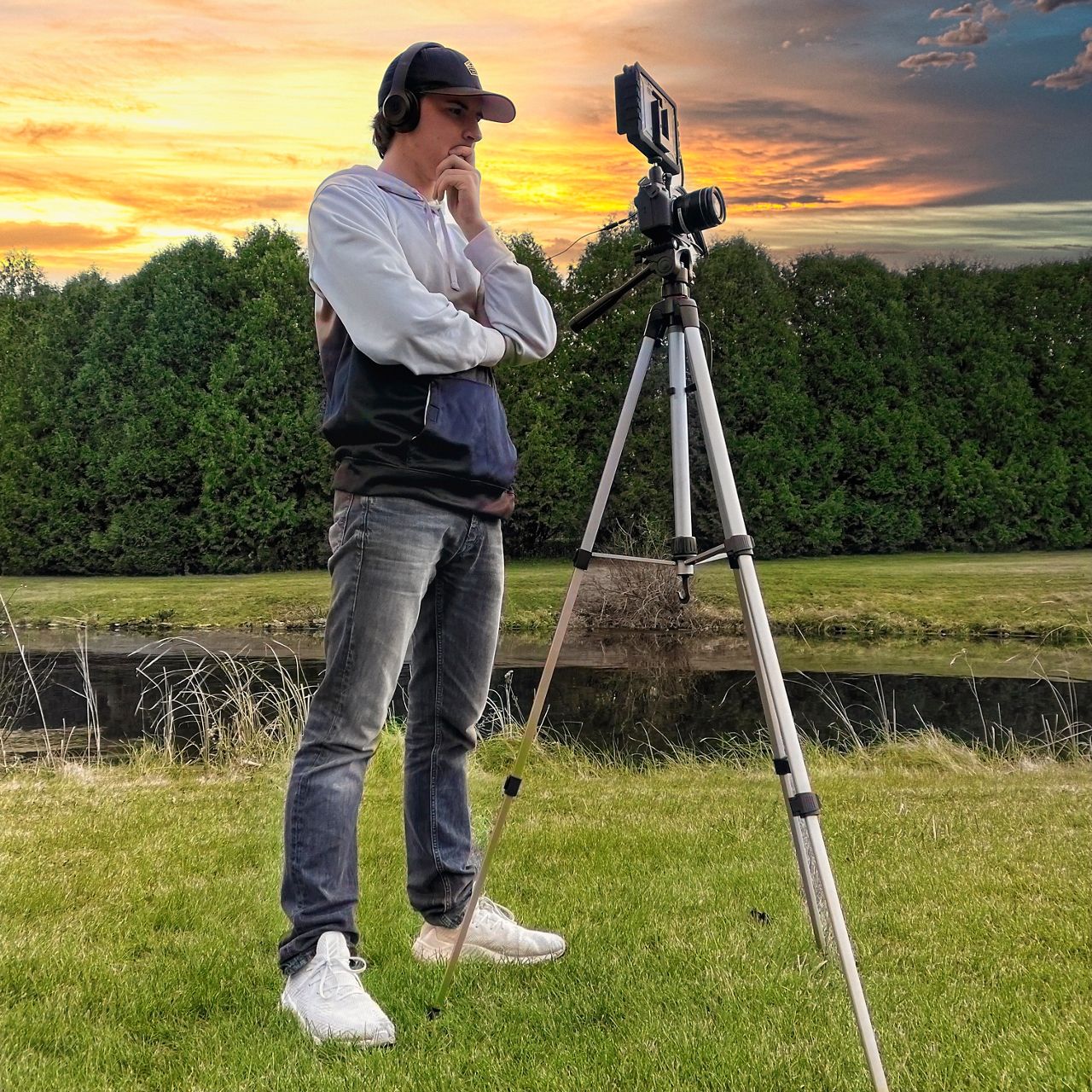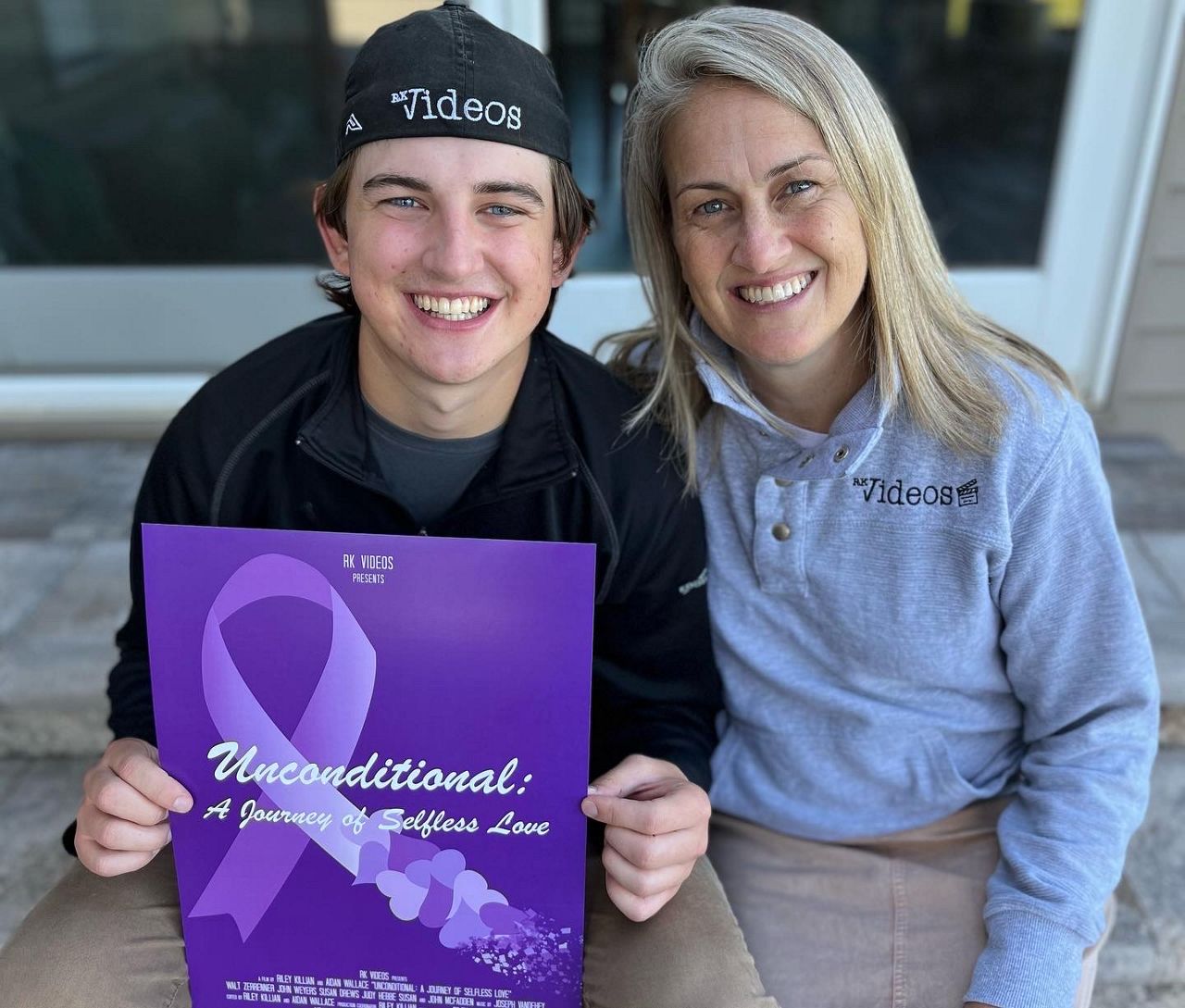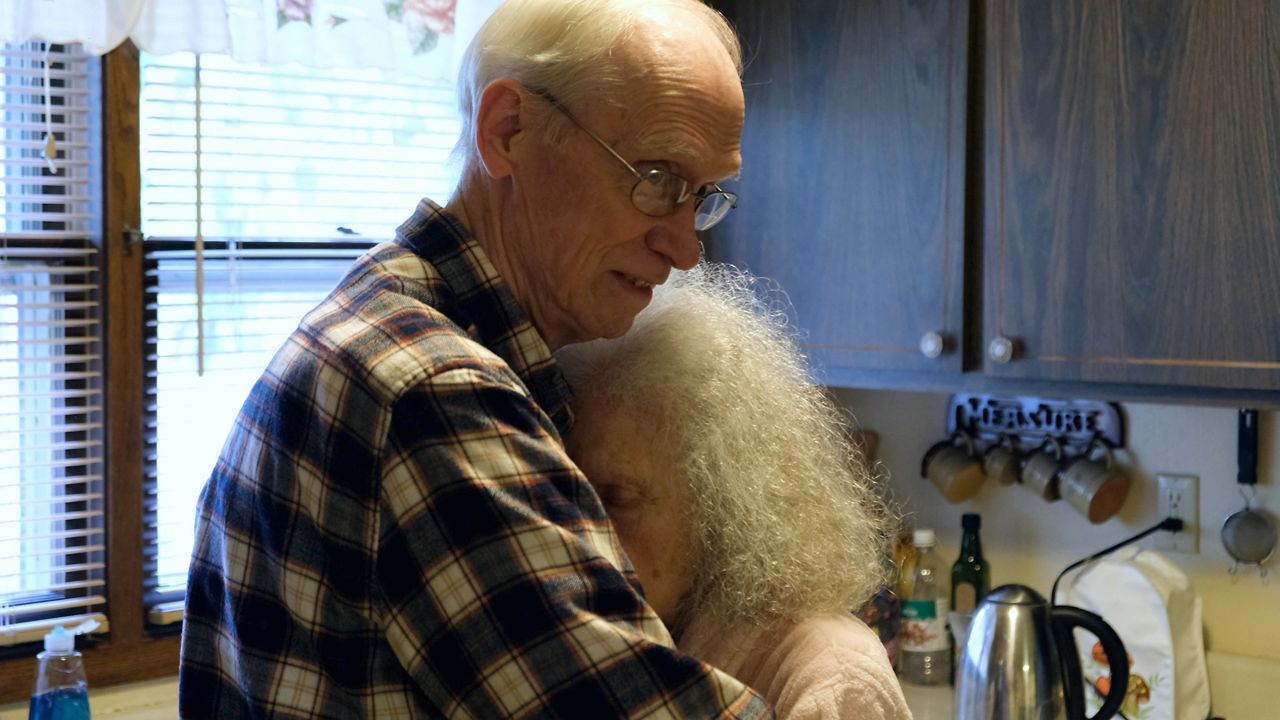Riley Killian admitted it was a pretty strange request.
A freshman film student at UW-Milwaukee, last semester he had to inform his teachers he had to miss classes one afternoon.
“And why is that, Riley?” said the teacher.
What You Need To Know
- Riley Killian, a freshman film student at UW-Milwaukee, made a documentary on caregivers and dementia
- It has been shown at Fox Cities-area senior and memory care facilities, UW-Oshkosh, the University of Wisconsin, and the Marcus By Park Cinema in Ashwaubenon
- The documentary is now being put on DVDs for distribution, has been enterted in multiple film festivals and has been submitted to Amazon Prime Video and PBS
- Watch the "Unconditional: A Journey of Selfless Love" trailer here
“I’m going to have to leave because my film is premiering in the Fox Cities,” said Killian, a 2021 graduate of Appleton North High School.
“You made a film?” responded the teacher.
Yes, he did.
Killian was not only a self-taught filmmaker, he accepted a request to do a documentary on caregivers who take care of loved ones with dementia or memory loss.
It would be a tough subject to tackle, even for a seasoned filmmaker. But after months of filming and editing, “Unconditional: A Journey of Selfless Love” was ready for viewing.
“I thought Riley did an amazing job,” said Katie Neuman, Community Life Director at Eagle Point Senior Living in Appleton, where the documentary was shown.
“When I first went into watching this video — I’ve been working in this field for like 16 years — and I was like, ‘I know everything about dementia.’ I was not expecting a whole lot from this. But I was glued to the screen. He did such an amazing job to touch the community."
“We also had family members of the loved ones in our building while we were showing this video, and it was very, very moving. I was very shocked. Again, like I said, I’ve been doing this a long time. And I couldn’t believe how well he relayed that into a documentary.”
****
When he was in fifth grade and Star Wars was the pick for family movie night, Riley Killian was hooked.
“I was like, ‘I want to do that. I want to make the movies,’” he said.
And as the son of two engineers, this apple fell a bit further from the tree.
As the years passed, the dream remained. But Killian never had the time or resources to push it forward. But as a high school junior, he formed his own company - RK Videos, LLC. When he graduated, he decided he would take a gap year as COVID cost him his two jobs, but afforded him the time to pursue his first love.

And this is the part of Riley’s movie where he gets his big break.
He previously contacted a fellow cross-country runner who was two years older and had started his own company producing videos around the Fox Cities. Killian began by helping him edit videos. But then his friend left for California, so he passed on some clients to Killian, who stepped in to fill that void.
Killian had the will, but not the knowledge.
“For the most part, I’m self-taught in all this,” he said. “I just watched a bunch of videos and learned from other people and talked to people and kind of made my own thing out of it. So each project is a learning curve.”
A local nonprofit then reached out and asked if he would record a play at the Fox Cities Performing Arts Center. It was about the journey of a caregiver to his wife. He agreed to do that. The nonprofit liked the result, then reached out once more.
“It was like, ‘Hey, Riley, what are your thoughts on possibly taking this story further, taking it to another level with a documentary interviewing family caregivers about this journey?’” Killian said of the conversation. “And I said, ‘absolutely.’”
****
Much like filmmaking, dementia patients and the role of caregivers were foreign to Killian. So he approached it the same way. He and his co-director, Aidan Wallace, read book after book.
From that, they developed a list of questions and, with the help of the nonprofit, they sent those to caregivers around the Fox Valley.
“That was really nerve-wracking,” he said. “Because you don’t know whether or not people want to share about this because it’s a very intimate and personal story.
“There’s their personal lives, and sharing that to someone is hard. But then you put a camera on that, and it’s even harder.”
Killian told the caregivers if they were not comfortable with any question, they could pass on those. But the response he received was surprising.
“As we were filming at (a caregiver’s) house, B-roll footage, there was a situation that came up and we’re like, ‘Oh, is this alright to film?’” he said. “And she’s like, ‘No, please do. We want to show people. This is our lives. We’re not trying to hide anything or sugarcoat anything. This is our lives. This is what I do every day.’
“And that really hit different because I was like, ‘Wow, how amazing that they want to share all of this information with the world.’”
****
The first to see “Unconditional” were the subjects of the documentary.
“I was scared,” Killian said. “I don’t know if I’ve ever been so nervous.”
He was anxious, not knowing if they would like it. Wondered if he accurately depicted the struggles, the compassion and the love caregivers provide to their loved ones and whether some families might insist certain parts be edited out left him churning inside.
“The uncertainty killed me going into it,” he said.

But when the documentary ended, and he saw their tears and their smiles and heard their words of thanks, he learned the power of what a documentary could have on people’s lives.
Wallace said one of the caregivers approached them after the documentary, and her response struck a chord.
“She was saying to us how she was kind of nervous to watch this, because she didn’t want to watch herself, didn’t want to be embarrassed by that,” Wallace said. “But after the film, she said she was moved to tears because it just summed up her journey and a lot of other caregivers’ journeys.
“That was one of the best feedback we got, because one of our main goals with this documentary was to show the lives and the struggles caregivers go through, and the love they have for their loved ones.”
The documentary was shown twice at Eagle Point, both before large crowds.
“They could relate to it,” said Neuman. “We’re trying to debunk that stigma of dementia and memory loss, and we want to make it a very welcoming and open society.
“And it really broke down those barriers that the residents had — like, ‘I can’t tell anyone that my wife has dementia,’ or something like that. They were able to open up and relate to somebody else with dementia and to help understand and bring awareness. It was a huge buzz around our community.”
Story idea? You can reach Mike Woods at 920-256-6321 or at: michael.t.woods1@charter.com



